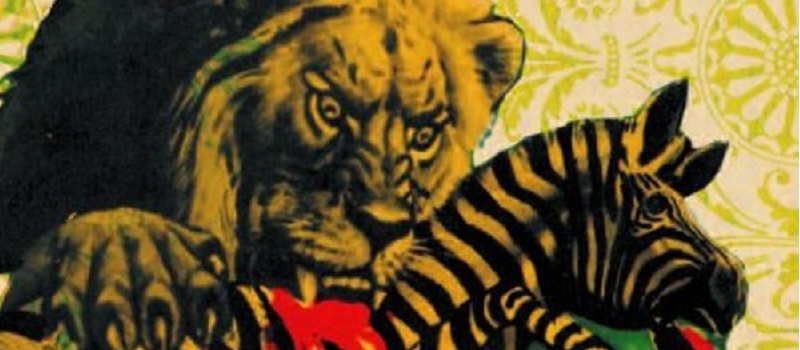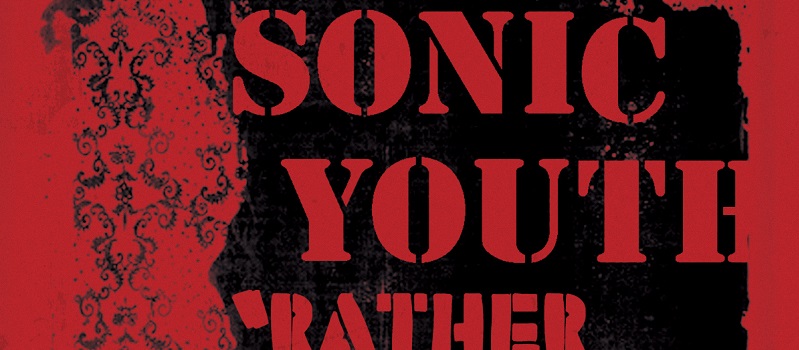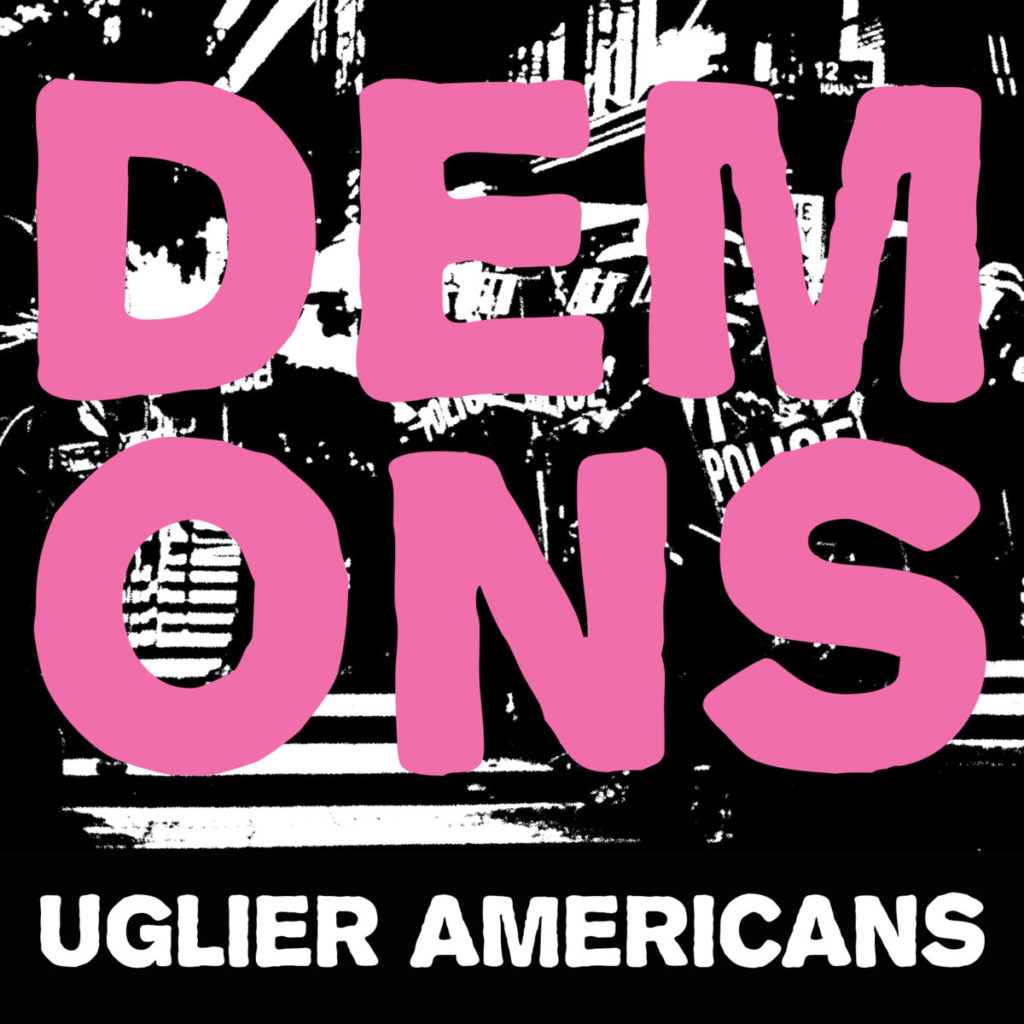In a political climate where partisan debate often resembles a primal scream therapy session, Jello Biafra — that godfather of politically charged punk missives — is not as furious as you’d imagine on Never Breathe What You Can’t See, his much-anticipated collaboration with the punk/metal demons Melvins. Sure, during the record’s nine tracks, Biafra unleashes the expected assaults on post-9/11 xenophobia, American imperialism, the oversized egos of our caricatured “leaders,” and the economic (and, interestingly enough, sexual) overtones of the War on Terror.
But his critiques on the Bush administration are occasionally watered down with broader rants on Western consumerism (“Yuppie Cadillac”), Clockwork Orange-style emotional and sexual repression (“Plethysmograph”), and uninformed/apathetic youth (“Enchanted Thoughtfist”). There are inspired moments on the disc (he rips Capitalism and do-as-I-say-not-as-I-do foreign policy to shreds in “Islamic Bomb;” “Dawn of the Locusts” is clearly a theme for an impending Judgement Day), but much of what’s on display feels less like the Molotov cocktails Biafra hurled during his Dead Kennedys days and more like what you’d find in the pages of any number of left-leading political publications or ‘zines.
This doesn’t necessarily mean the disc fails. Far from it, Biafra and Melvins (hereafter known as the Jellvins?) have put together an explosive and well-timed social document that also happens to be one of the year’s most interesting punk/metal hybrids. You’re only left wishing they had become further unhinged.
What might stand out most for Melvins aficionados approaching the disc is how much the West Coast trio has tweaked its wall-of-thunder brand of punk/grunge/metal to fit with Biafra’s brand of punk assault. Gone are the jagged stops and starts that defined early Boner Record releases like Gluey Porch Treatments or Ozma and the venomous but angular chemistry of their Ipecac trilogy or Hostile Ambient Takeover. What Buzz Osborne, Dale Crover, and Kevin Rutmanis (appearing here, respectively, as Jon Benet Milosevic, Saddam Disney, and George W. McVeigh) lay down on Never Breathe What You Can’t See is a studied hybrid of late-70s/early 80s punk and strains of heavy metal from the same period. To be fair, Osborne doesn’t crank out East Bay Ray riffs or mimic Greg Ginn, but his approach with Biafra (a.k.a Osama McDonald) depends more on quick successions of choppy power-chords, palm-muting, and trebly solos than usual. The guitars on some tracks (“Plethysmograph,” “Yuppie Cadillac”) even owe more to punk forebears like Zeppelin or the stadium-filling riffs of Kiss.
Crover and Rutmanis, surprisingly enough, are less a focal point of the disc. As per usual, Crover outdoes himself, providing steady-handed but lightning-fast backbone to certain songs (“McGruff the Crime Dog,” “The Lighter Side of Global Terrorism”) and injecting a violent and unexpected edge elsewhere (the pounding “Dawn of the Locusts,” the almost-funky bounce of “Islamic Bomb”). But Rutmanis, when not called to the forefront, disappears almost entirely. The record’s decidedly treble-heavy mix suits Biafra’s nasal shouts and soaring wails well, but it’s inherently unkind to Rutmanis, whose bass is, at best, the record’s third or fourth fiddle.
But, for as much as those with high expectations will pick away at certain details of the disc, there’s more than enough to go around when it comes to brilliant moments. There’s a house-on-fire urgency to the way Osborne’s guitars drop out of the way to make room for Biafra ruminations like “Thank you, Osama / You are the savior / Of our economy today” on “McGruff the Crime Dog,” a track complete with a vintage punk chorus with backing vocals from, among others, Johnny NoMoniker and Ali G. North. The incredible “Caped Crusader” begins with a creeping muted guitar courtesy of when-the-hell-is-he-going-to-quit-Tool-and-join-Melvins-full-time contributor Adam Jones and then expands into a vicious barn-burner with inspired guitar work. (The song’s lyrics — complete with a chorus of “God is great / God is love / We must kill / infidels — are “written” by former Attorney General John Ashcroft, suspected 9/11 ringleader/hijacker Mohamed Atta, and Biafra, who invites listeners to “spot the difference.” Charming.) After the jagged, “Some Dispute Over T-Shirt Sales”-inspired introduction, “The Lighter Side of Global Terrorism” is anything but light.
The musical fury is tuned down on “Islamic Bomb,” where Biafra spits out some of his sharpest commentary (Try “For the real Axis of Evil / Keep an eye on free enterprise” or “Hide in our Green Zones / ‘Til Jesus comes�”) over a loungy bass line, mounted tom rolls, and Osborne’s vaguely Middle Eastern scales. “Dawn of the Locusts” closes the record with an apocalyptic sense of abandon, all pummeling guitar-and-drum refrains, furious backing vocals soaked in distortion, feedback-riddled slide bass, and acidic lyrics like “Sacred corporate logos / are the new swastikas / to the proud-to-be / patriotically incorrect hordes.” A sludgy breakdown (and then speed-up) halfway into the track, where Biafra barks into a processor on his way through the shadows of a lurching Melvins verse, is one of the disc’s most beautiful few minutes.
Yeah, it’s a great record that some devotees, no matter what product they’re handed, may say needed to be even bigger, even louder, even crazier, even angrier. Maybe. Here, though, is my only question — why didn’t Biafra and Melvins mop the floor with American Idiot and get this goddamned disc on the streets and on the radio before Election Day? – Delusions of Adequacy, Feb. 9, 2005




